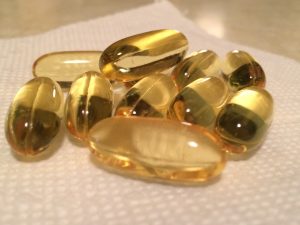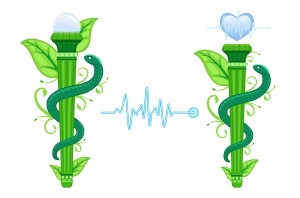 This question is a common question that I get in my practice. The short answer to this question is yes, quality and brand really do matter and can make a big difference with how quickly or effectively you achieve your health goals. Some common problems with some supplements in the market place are as follows:
This question is a common question that I get in my practice. The short answer to this question is yes, quality and brand really do matter and can make a big difference with how quickly or effectively you achieve your health goals. Some common problems with some supplements in the market place are as follows:
Use of the wrong part of a plant
In the past, there has been some problems that have arisen for several brands due to individuals taking the product and becoming very sick. The reason stemmed from them using the wrong portion of the plant. The plants included in this were Black Cohosh and Kava Kava. Many companies were using the cheaper portions of the plant and not actually using the plant the way it was traditionally used, resulting in serious medical conditions as liver cirrhosis. Moral of the story is just because a botanical is good does not mean all of the parts of that plant are good.
Decreased amount of actual substance in it
Some studies have been released demonstrating that after investigation of 32 chondroitin products on the market, only 2 of the products actually had the amounts of the product that they claimed to be in the bottle. What was worse was that just under half of the bottles contained 10% or less of the claimed amount of the product. Dose does matter and if you cannot get the adequate amount, a lot of the times it is just a waste of money. (Source: https://www.researchgate.net/publication/228559816_Analysis_of_glucosamine_and_chondroitin_sulfate_content_in_marketed_products_and_the_Caco-2_permeability_of_chondroitin_sulfate_raw_materials)
Contamination
Unfortunately, not all brands are made equal, and that includes what fillers are put into them. Some supplements contain heavy metals, mold, pesticides, dairy, gluten, or chemical fillers. These can make it very hard on the digestive tract, affect absorption, and actually cause you to become sicker. Looking for brands that are free from these contaminates can help some individuals that may find that they “react to all supplements”.
Products not containing adequate doses of substances
Another problem that I often stumble across when patients bring in their current supplement regime is that a lot of the brands out on the market do not actually contain high enough doses of certain ingredient in order to make them effective. I am surprised that some supplements would have the individual taking 6 capsules per day to achieve therapeutic value, while the recommended dose is 2 capsules per day. This is a waste of money and is ultimately lacking in the effectiveness overall.
How do you know you are getting the best supplements?
It is important to always consult a naturopathic doctor before beginning to take any supplements. Supplements are not harmless and have the possibility of interacting with medication. Before I began my practice, I researched which supplement brand was the most efficacious, research based, and the best quality for my patients. The brands that I carry are a reflection of that research, where they contain adequate amounts to reach therapeutic level, are void of contaminants, and use the appropriate plant parts when indicated. I have also looked on the market to see what is available from local health food stores and have found some better brands of those out there. Having a health care team on your side that has done the research in this area and can help to determine what supplements are needed for your personal health concerns is of utmost importance. For more information in this area, please consult a naturopathic doctor before self-prescribing.
Have you benefited from reading this blog? Know someone that would benefit as well? Share, Like, Comment, or Tweet this article, and let me know what you think.
Some of the information provided above may not be appropriate for everyone, please consult with your doctor before trying any of the above. If you are interested in Naturopathic Medicine and wanting a different approach to your health care needs, contact Dr. Elisha Cook ND by calling 519-537-7058 and book your appointment today!



